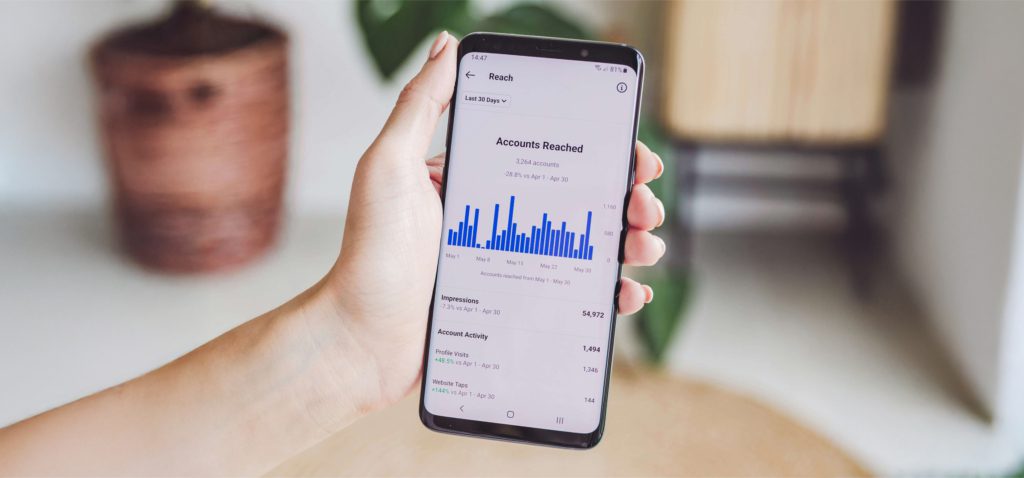After setting up a successful PPC campaign, it can feel like all the hard work is done.
There is often the temptation to ‘set it and forget it’ and leave your campaign to run itself.
However, this could be more harmful to your campaign than you realise, causing you to end up back at square one.
The key to continuing your campaign’s success is through PPC optimisation to help improve its overall efficiency.
PPC optimisation can also help you stay ahead of the competition, with HubSpot stating that 72% of companies haven’t looked at their ad campaigns in over a month.
To help you get started, continue reading to find out the five easy steps you can take to improve your PPC campaign’s efficiency…
1. Regularly update your keyword lists
At the start of your PPC campaign, you will have selected high-performing and relevant keywords.
However, over time, factors such as increased competition, ad position changes, changes in user search intent, trends, and ad fatigue can contribute to a drop in performance for a keyword.
That is why it is essential to review the performance of each keyword that you pay for, as you can then remove the keywords that are underperforming.
This can then help you effectively manage your budget and reallocate it to better-performing keywords, which will drive results.
Regularly reviewing your keyword lists can also help you identify new opportunities, including emerging trends, seasonal events, and long-tail keywords that you could be targeting.
2. Use negative keywords
A lot of focus and effort goes towards targeting the most relevant keywords, so much so that we forget what keywords we do not want our content to appear for.
For example, if you were running a campaign for your luxury jewellery brand, you may want to avoid appearing for searches such as ‘cheap jewellery,’ ‘discount jewellery,’ and ‘second-hand jewellery.’
To include negative keywords in your PPC campaign, you will need to choose from three match types:
- Phrase – will not display your content if the search query contains all your negative keyword terms in order, surrounded by additional words
- Broad – prevents content from appearing when a search contains all your listed negative keyword terms
- Exact – stops your content from being displayed if a search query matches your negative keyword terms in the exact order, excluding additional words
SEMrush states that using negative keywords as part of your PPC campaign management allows you to improve your quality score, save money, and boost your click-through-rate, as you are only appearing for relevant queries.
3. Carry out regular A/B testing
An effective method of deciding how best to carry out PPC optimisation is by utilising A/B testing.
If you are monitoring PPC ad performance and it is not doing quite as well as you had hoped, A/B testing is a fantastic way of delving deeper and experimenting with new concepts.
A/B testing poses many benefits to your PPC campaign, including learning more about your audience, reducing wasted budget based on results, and helping to improve click-through-rate and conversion.
However, the best benefit of using A/B testing for PPC optimisation is that it allows you to test a range of ideas on a select audience before putting them out there.
4. Improve your quality score
Your quality score can have a significant impact on your PPC campaign’s overall performance.
Search Engine Journal states that having a high-quality score matters, as this can affect which ads are eligible to enter the ad auction, how eligible ads are ranked, and what the cost-per-click advertiser needs to pay.
To make sure your ads are eligible, Google Ads states that it calculates an overall quality score based on expected click-through-rate, ad relevance, and landing page relevance.
Based on those factors, you need to ensure:
- You are using targeted and relevant keywords throughout your content and ads
- Your landing pages have clear and helpful content
- Users can easily navigate around your page
- Your ad groups are organised if you are using Google Ads
- To include negative keywords to filter out irrelevant searches
5. Use ad extensions
Ad extensions can be incredibly useful to your PPC campaign, as they allow you to display additional information about your brand.
This can include your business’s address, contact number, a link to your website, or unique selling points such as an offer for same-day delivery.

Adding ad extensions to your PPC ads can help to improve your visibility on the search engine results page, as your ad will be larger, more informative, and will compress the competitor ads below it.
They can also offer a better user experience, providing users with enough information to make an informed decision about visiting your website, and offer more value to your ads without wasting budget, as you will still pay the same cost-per-click rate.
Need help with your PPC campaign?
If you are not sure how you can further improve your PPC campaign’s efficiency or need advice on PPC optimisation, get in touch today to see how we can help.
We also offer Free Acquisitions Workshops, where you can receive expert advice from our experienced marketers, free resources, and a personalised action plan tailored to your needs.












